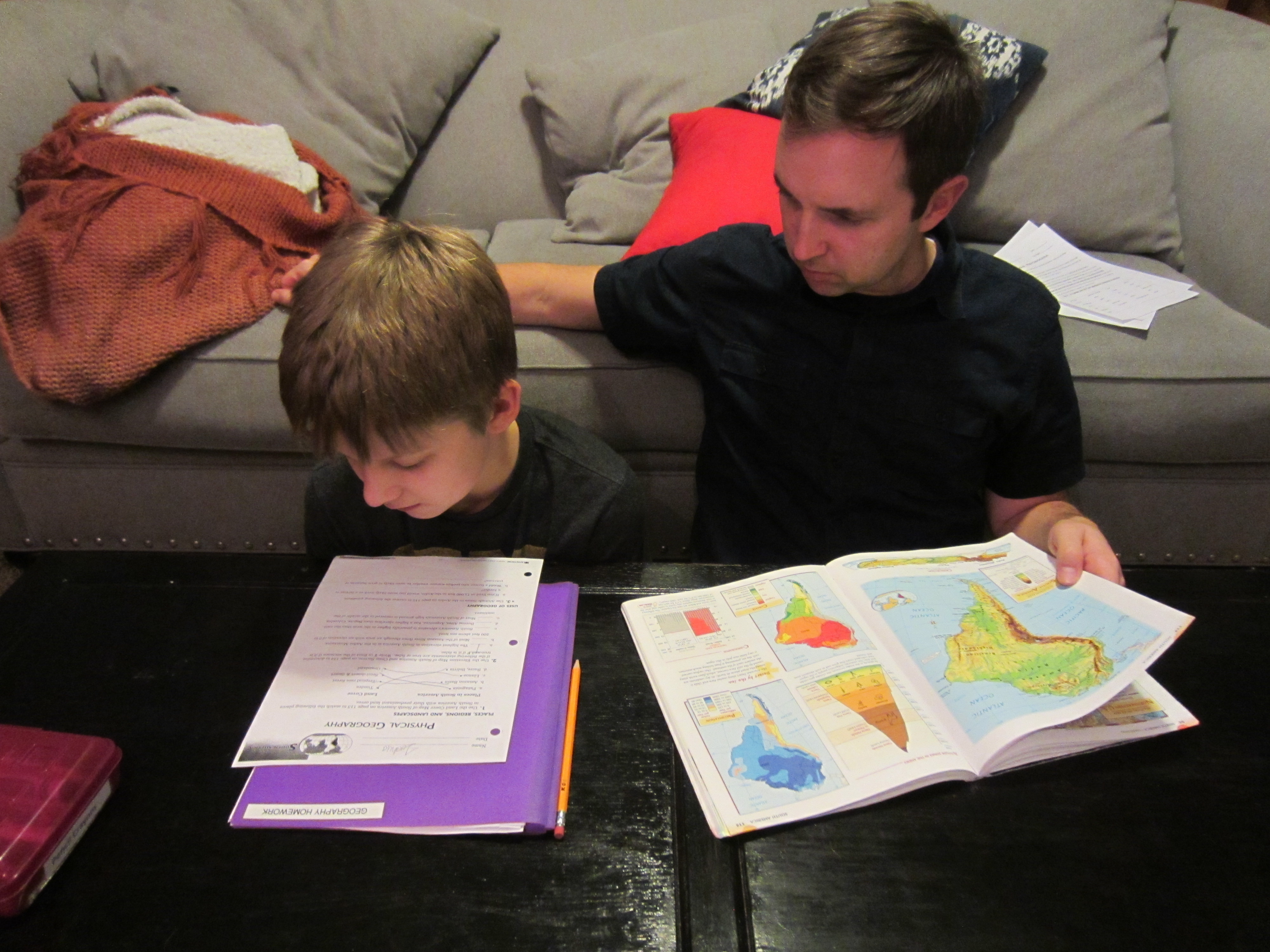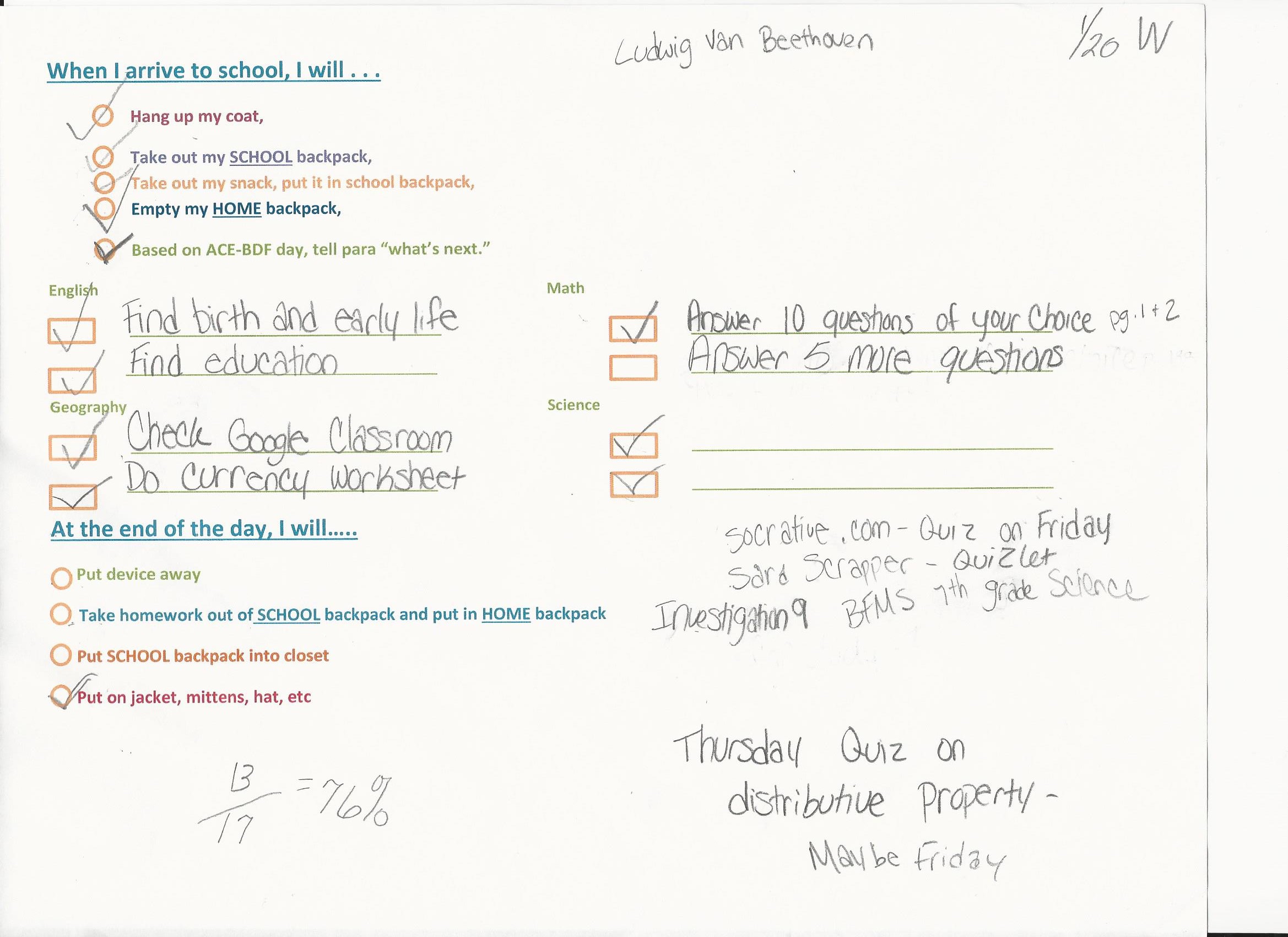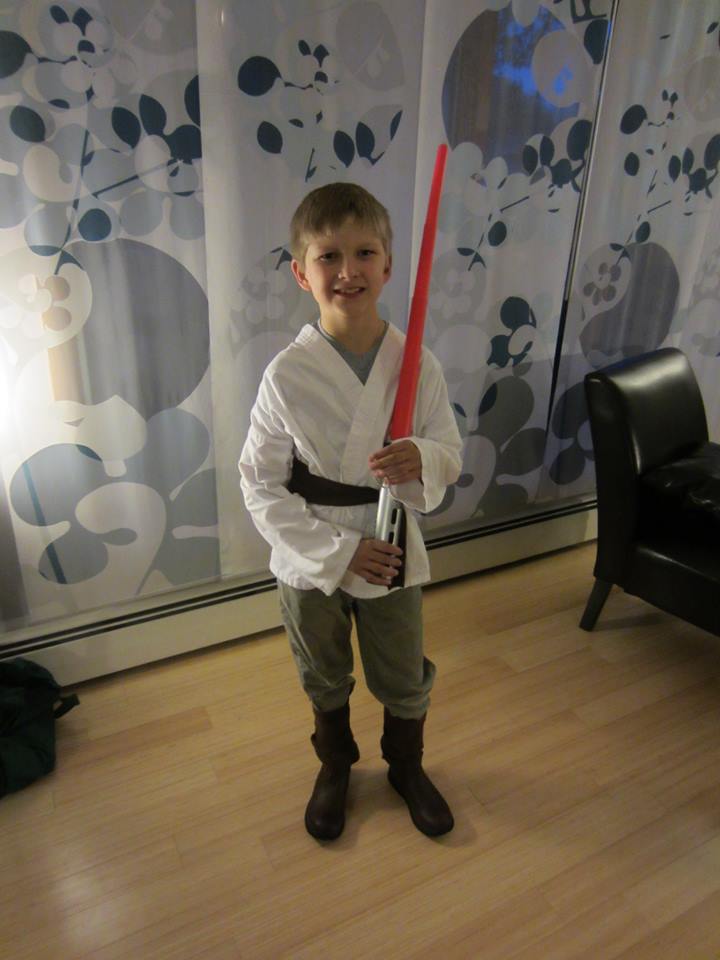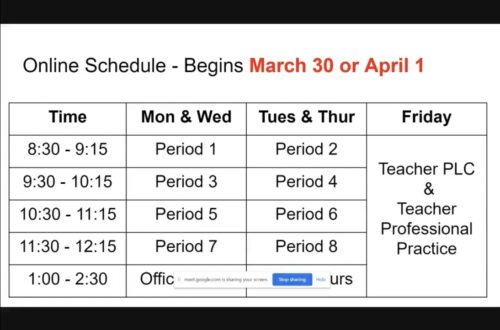
Adaptations and Modifications

It’s been about a month since J’s IEP meeting and I’m really excited about some of the ideas the team came up with. I guess that’s what happens when you get over a dozen people in a room to discuss J.
The hard thing about J is that there is no academic setting he really fits into. J is what I call “middle autistic.” If you think of a line graph where “low functioning” is on one side and “high functioning” is on the other, I would put J smack dab in the middle. So where do you put an “in the middle of the spectrum kid” in the public school setting? He would be bored to tears and be a behavioral nightmare in a magnet special ed classroom for lower functioning students. He doesn’t even really fit into a typical magnet autistic classroom either. Right before J entered kindergarten, I took the tour of the magnet autism classroom and thought, “J could never learn here. The meltdowns, the defiance, all the things that J exhibits too when he’s frustrated–it would just reinforce his own behaviors.” It was also really, really loud. J would go crazy with all of the auditory stimulation and be so stressed out, he wouldn’t be able to learn. No, the magnet autistic classroom really wasn’t an option either.
J manages changing classrooms, the transitions, and going to all 8 periods of the day just fine. He opens his locker on his own without help. In fact, when W had to navigate her locker before school started, he easily opened hers on the first try. He LOVES geography, choir, FACS, and art–all classes he wouldn’t have access to if he were in a magnet special education or autism classroom all day. Even though he is absolutely dreadful at social interactions, he loves to see his friends throughout the day, so he’d miss a lot of those opportunities if he were placed in the “low functioning” places in the current system.
But he isn’t “high functioning” enough to navigate a regular classroom on his own. He needs a para with him at all times (primarily to help him regulate his emotions and behaviors), he needs someone to make sure he’s on task and he’s got his work organized. Someone to make sure his work is legible and his work is turned in. He’s not like the Aspies who can demonstrate savant-like qualities that make it easier for students and teachers forgive those “high functioning autistic kids” of their social-emotional deficits.
Sometimes he can be disruptive or say and do inappropriate things. How do you manage his learning with the learning of his peers in his class? How do you be fair to them and make sure they have the right learning environment that they need?

How exactly do you educate a kid like J?
Middle school also throws a wrench in the situation because instead of one classroom teacher who sees J intermittently throughout the day (while he is pulled for speech or OT or extra help on an assignment), J has 8 different teachers a day who have less than an hour to figure him out as well as the rest of the kids in the class and teach their lessons.
That’s why I’m so grateful that we have great teachers and paras who are willing to work with him. I know this kid can learn–he loves to learn. You have to be creative sometimes, but boy when that boy gets it, he GETS IT. The big challenge is how do we make this work for him and everyone else? How do I, as a mother who knows my kid can do things–who may take years to learn things but will absolutely learn things–how do I make sure he’s in the right situation with the right people?
I feel like we’re sort of the trailblazers and that we’re making mistakes all the time–torching fields left and right. Breaking new ground along side educators trying to find out how to help J academically, socially, and emotionally is hard. Many educators with their decades-long experiences in the classroom have never had a kid like J come through the system. But my gut says that J’s not the only “middle autism” kid out there. That there will be plenty more coming through the pipeline in the years ahead.
Since J’s come back from winter break and started a new semester, the team has come up with a few (I think) really great ideas to help J navigate the classroom a little better and hopefully in the long run, gain some more independence. This is the idea I’m the most excited about right now:

We’re also working on modifying his classwork. Through our IEP discussion we discovered that J’s academics boil down to two big things. 1) He’s great at memorization and facts and 2) He really really struggles with applying knowledge and abstract thinking. So he may be able to tell you every capital city of every country in the world, but he won’t be able to tell you why people build economies around certain natural resources. So we’re modifying some of his assignments a little. For example, if a classroom teacher expects the class to, say, understand 3 abstract concepts during the week, J might be expected to understand 1. This idea is still in the planning stages, but I think it’s a great modification. J gets really frustrated when he’s overwhelmed with a list of things he feels he “can’t do.” If we narrow that list down to a few things, then he can work at understanding those concepts a lot better.
I know this kid can do this. This summer he could barely scribble color on a Mario coloring page. Now he colors in countries on maps in Geography. Yes, he’s delayed in many ways–but this kid has got potential. It may take him days, weeks, months, even years to figure something out. But he’ll do it. That’s why I can’t give up on him. That’s why I have to make sure the system doesn’t give up on him.
J’s latest geography test. he got 37/40 countries correct. (I’m embarrassed to say I wouldn’t be able to do that). But the thing that really, really gets me excited–CHECK OUT THAT HANDWRITING!!!
We’ve come from this last year:

To this!!! (Be still my heart!):

J, if you promise not to give up trying, I’ll make sure other people won’t give up on you.





2 Comments
Dylan
Wow! As I read this all I could think of is how are the other children learning? I remember school and it was tough enough with the day to day distractions of peers.
What a nightmare situation for everyone, trying to pretend that non-normal kids fit into a normal learning environment.
It’s a sad for our education system really. And I really feel for the teachers….
sarahbeck30
Thanks for reading, Dylan! Yes, it’s a really tricky situation. I can’t help but think with all the kids on the spectrum coming through now (1 in 68 kids) there will have to be a better way of accommodating them. We’re so lucky that J has such great teachers that are willing to work with him in the ways they can with the resources they have. These teachers are really in the trenches and they work so hard to educate our kids.